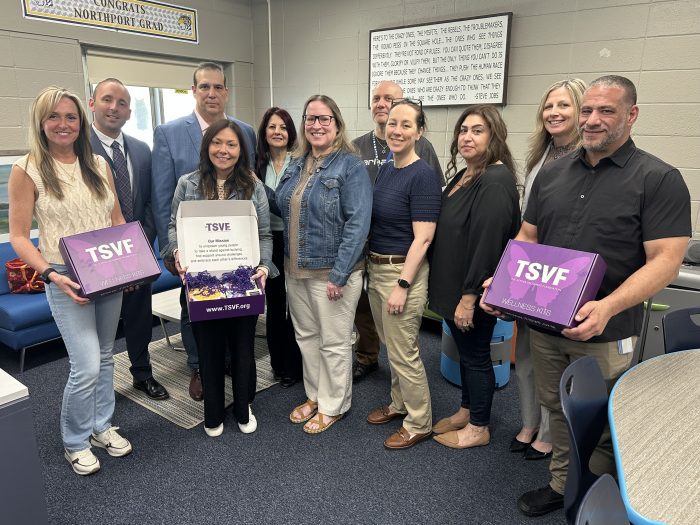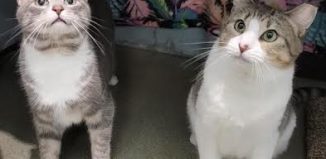Sophia Valsamos Foundation brings mental health resources to classrooms

By Sabrina Artusa
Mental illnesses claim thousands of adolescents and young adults each year. Chris Valsamos, founder of The Sophia Valsamos Foundation, is dedicated to enabling this vulnerable demographic with the skills to navigate the tempestuous reality of being a teenager in the era of social media and cyberbullying.
Valsamos lost his 13-year-old daughter Sophia to suicide in 2017. He realized that mental health is still not normalized in schools — that shame, ridicule and judgment are still associated with asking for help. Through his foundation, he aims to create an environment where mental services are incorporated both into classrooms and at home. He and his foundation launched wellness kits filled with items carefully chosen to normalize mental services by making them accessible.
“There is a lot of red tape involved with programming. With the wellness kits we were able to reach past the red tape,” Valsamos said, adding that the foundation is his way to “honor” Sophia by providing “as many tools as possible.”
“We wanted to help them manage stress, some of the components help them build resilience, and some components help them manage stress throughout their day,” he said.
This includes mindfulness cards, a stress ball, a “calm the chaos” journal and books like “Anxiety Relief for Teens” and “Stuff That Sucks” that include cognitive behavioral therapy strategies for building resilience. The kits also provide ways teachers can integrate the items into the classroom. Valsamos and president of The Sophia Valsamos Foundation Keith Senzer imagine exercises where students work on a prompt from the journal and discuss as a class.
The Northport-East Northport Union Free School District received the kits a month ago. Teachers have the option to utilize the contents as a class, perhaps by initiating discussion and integrating mindfulness exercises into the daily routine.
“If you have a group you are breaking the stigma,” said school social worker Anthony Ferrandino. “Everyone has these social emotional issues. Everyone has stress…if your peers are currently sharing stuff, you’ll reduce things like bullying and feeling judged or alienated.” Instead, he added, “it is the exact opposite of that. Students are growing together.”
Senzer, Valsamos and Ferrandino emphasize the parental support to reinforce the beneficial resilience skills students will learn in schools. While it is important to initiate conversation about mental health, teenagers may not want to talk with their guardian. If a parent is observing warning signs of declining mental health, like if a child is locking themselves in their room or losing interest in socializing or in their hobbies, it can be helpful to ask another trusted adult in their circle to help. This could be an aunt, a coach or a teacher.
Parents should be diligent. Adolescent suicide or mental illness “is unthinkable as a parent,” said Senzer. “So why would we think it?”
The kits are just one of many programs offered by The Sophia Valsamos Foundation.
Additionally, teaching your child how to be there for their peers has proved to be invaluable. Ferrandino said students come to him about a friend who may need help more often than teachers do about a student.
“It is about changing the entire culture — the educators, the administrators, the security guards, the bus drivers. It is a whole culture shift where everyone there is understanding the importance of emotional regulation, how to manage [it], how to support one another, how to be kind and empathetic and caring toward one another,” Senzer said. “Once we raise that generation, we can change the world that way. These kits are amazing on their own but they are just step one to broadening our horizons.”
For more information visit the foundation website: www.tsvf.org.





